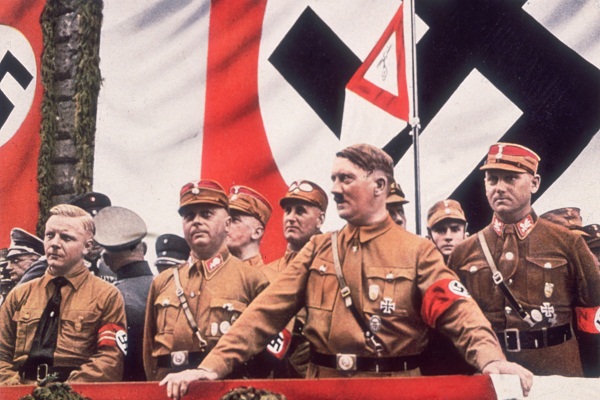A great historian has died. He joined the Nazi party in the 1930s, spurred by a fear of the communism which was then spreading through Europe. Although he survived for many decades to see the consequences of the ideology, he nevertheless remained nostalgic for, and loyal to, fascism.
He also retained an active interest in the Conservative party and acted as a guru for a time to John Major, though he subsequently expressed disappointment at the direction of his leadership. In a statement the current leader of the Conservative party, David Cameron described the historian as:
‘An extraordinary historian, a man passionate about his politics and a great friend of my family’.
He went on to say:
‘His historical works brought hundreds of years of British history to hundreds of thousands of people. He brought history out of the ivory tower and into people’s lives.’
The historian’s highly-praised and award-winning books were in later years occasionally criticised for downplaying or denying the crimes of Nazism. Friends and colleagues pointed out that when he joined the Nazi party communism had posed a real threat to world peace. He took up numerous positions of seniority and influence in British universities.
In recent years some controversy was caused when he was asked whether the deaths of millions of people in the Holocaust would have been justifiable if it had led to the fascist state he wished to bring about and he replied ‘yes’. Lively, witty and convivial, he remained a central figure in far-right circles and was always able to draw a crowd at the Hay-on-Wye festival and the salons of literary London. For his many notable achievements he was given numerous awards. In 1998 he was made a Companion of Honour.







Comments